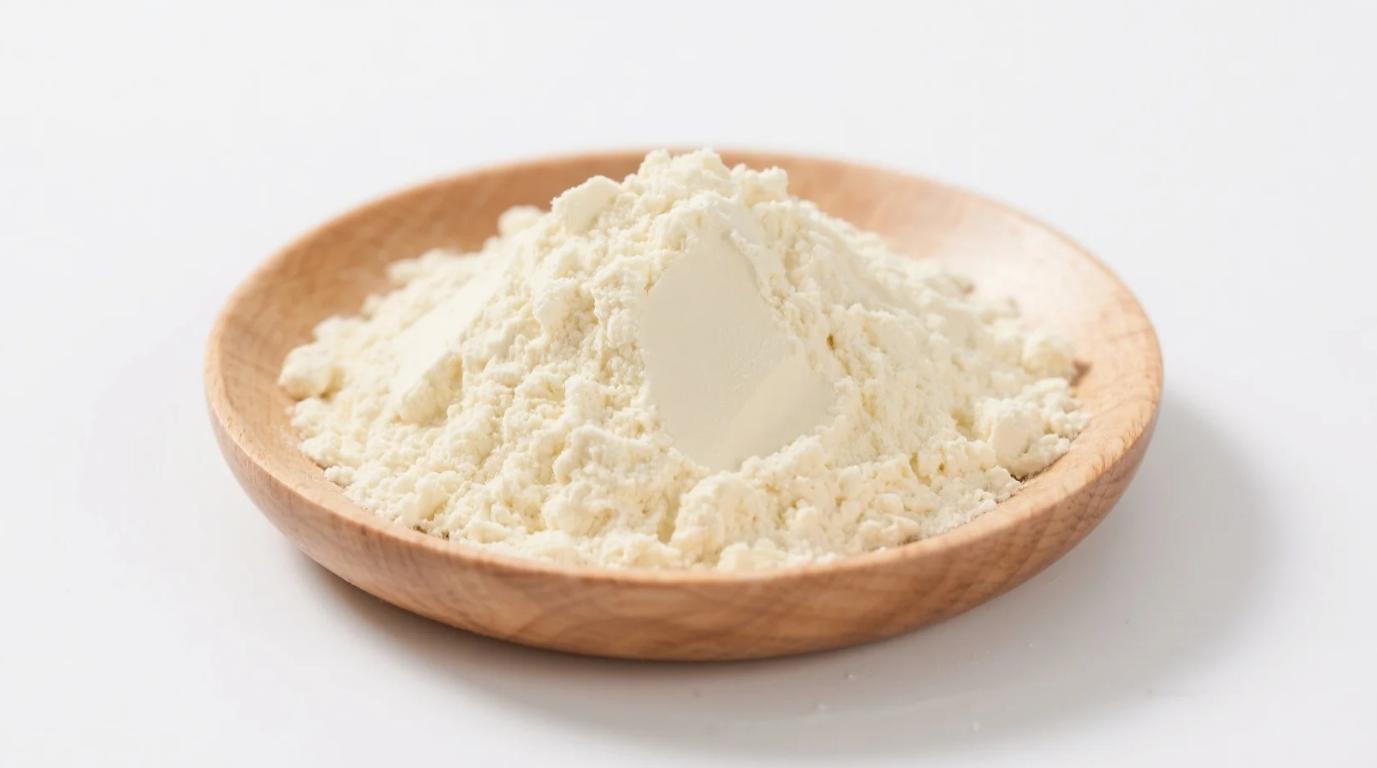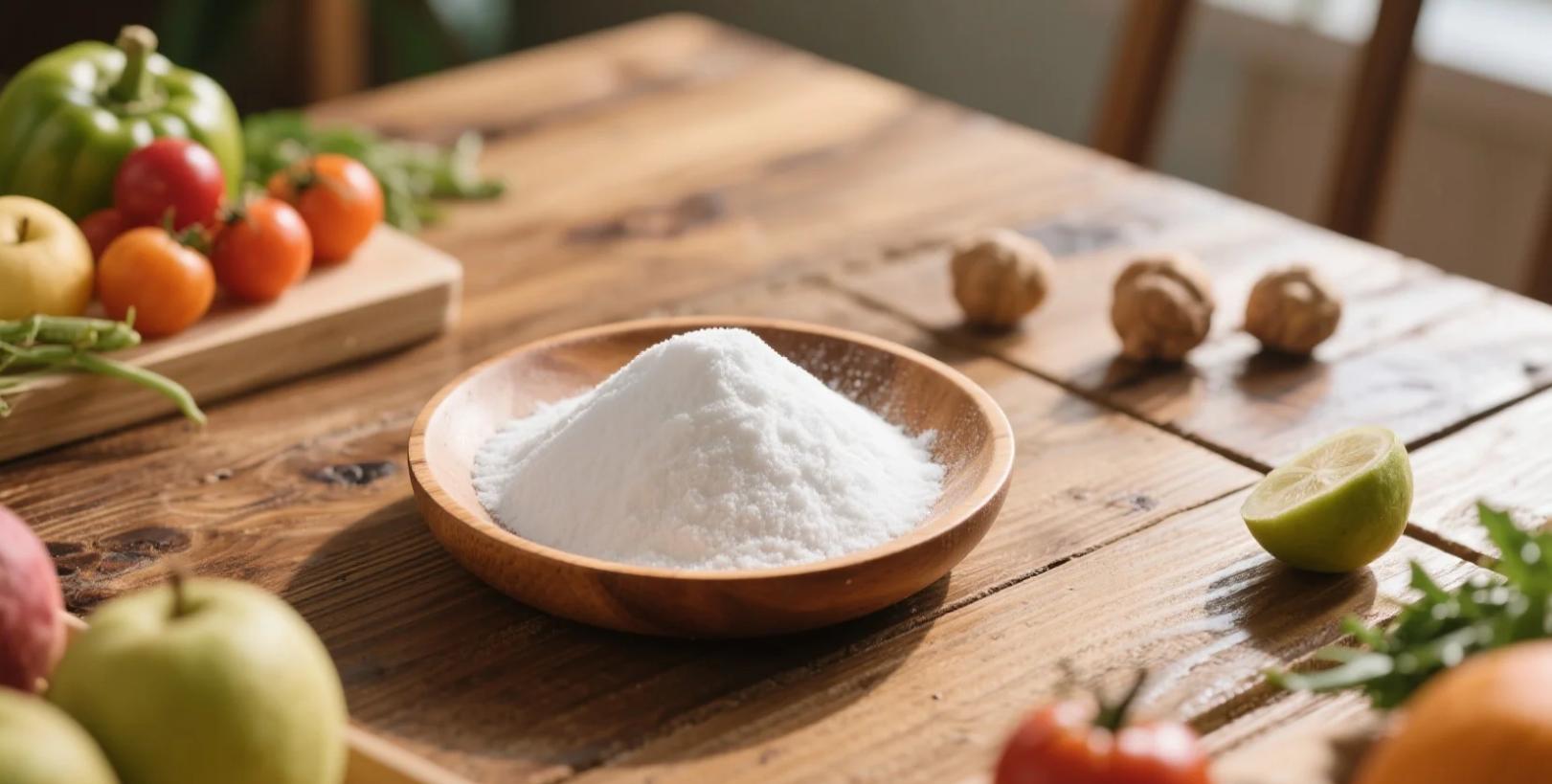Table of Contents
Organic soy protein powder is a popular plant-based protein source, celebrated for its complete amino acid profile, versatility, and sustainability. It’s a staple for many vegetarians, vegans, and those looking to reduce their reliance on animal products. However, like any food or supplement, it’s essential to understand that soy protein also has a few potential drawbacks or considerations that some individuals might need to be aware of.
While generally safe and beneficial for most, here are the main points to consider:
1. Phytoestrogens and Hormonal Concerns
This is arguably the most talked-about potential drawback of soy protein. Soy contains compounds called isoflavones, which are a type of phytoestrogen. Phytoestrogens are plant compounds that can mimic the effects of estrogen in the body, albeit much more weakly.
- The Concern: Some individuals worry that these phytoestrogens might negatively impact hormone balance, particularly in men (concerns about feminization or reduced testosterone) or in women with certain hormone-sensitive conditions.
- The Science: The vast majority of scientific research, particularly large-scale human studies, indicates that moderate consumption of soy protein does not negatively impact hormone levels in healthy men or women. In fact, some studies suggest potential benefits, such as reducing hot flashes in menopausal women or potentially lowering the risk of certain hormone-related cancers. However, individual responses can vary, and those with specific hormone-sensitive conditions or strong concerns might choose to limit intake or consult with a healthcare professional.
- Processing Matters: It’s worth noting that organic soy protein powder (especially isolate) often has a lower concentration of isoflavones compared to whole soy foods, as some are removed during processing.
2. Potential for Allergies and Sensitivities
Soy is one of the eight major food allergens. For individuals with a soy allergy, consuming soy protein can trigger a range of reactions, from mild symptoms like hives and digestive upset to severe, life-threatening anaphylaxis.
- Symptoms: Reactions can include nausea, vomiting, diarrhea, abdominal pain, skin rashes, swelling, and difficulty breathing.
- Prevalence: While common, it’s more prevalent in children, though many outgrow it.
- Consideration: If you have a known soy allergy or suspect a sensitivity, soy protein powder should be strictly avoided. Always check labels carefully.
3. Presence of Antinutrients
Soybeans, like many legumes, naturally contain compounds known as antinutrients. These substances can interfere with the digestion and absorption of other nutrients.
- Examples: Phytic acid (which can bind to minerals like iron and zinc, reducing their absorption) and protease inhibitors (which can interfere with protein digestion).
- Mitigation: The good news is that the processing involved in creating organic soy protein powder significantly reduces the levels of these antinutrients. Fermentation, soaking, and heating processes during manufacturing effectively neutralize most of these compounds, making the protein and other nutrients more bioavailable. For most people, the levels remaining in soy protein powder are not a significant concern.
4. Digestive Discomfort for Some
While soy protein is generally well-digested, some individuals might experience mild digestive upset, such as bloating or gas, especially when first introducing it into their diet. This can sometimes be attributed to individual sensitivities or the fermentation of residual fibers/oligosaccharides in the gut.
- Tip: If you experience this, start with a smaller dose and gradually increase it, or consider a soy protein isolate which has fewer carbohydrates and may be easier to digest for some.
In summary, while organic soy protein powder offers numerous benefits as a high-quality, plant-based protein source, it’s prudent to be aware of the potential drawbacks related to phytoestrogens (though often overstated), allergenicity, and the presence of antinutrients (largely mitigated by processing). For most healthy individuals, these concerns are minor when consumed as part of a balanced diet. However, personal health conditions and individual tolerances should always guide dietary choices.
Are these considerations impacting your decision to use soy protein?
Related Products
Organic Soy Protein Powder
Organic soy protein offers 65-90% complete plant protein with heart-health benefits. Options…


